Cockatiels are delightful, affectionate, and intelligent birds that make wonderful pets. They are known for their playful nature and impressive vocal abilities. To ensure your cockatiel thrives in your home, it is crucial to provide them with a proper cage setup that meets their physical and emotional needs. In this comprehensive guide, we will explore how to choose the right cage, essential accessories, and proper maintenance to create a happy and healthy environment for your new feathered friend.
Why do cockatiels make great pets?
What’s not to love about a bird that can talk, and learn phrases and sounds from humans easily? That requires little maintenance, but still has plenty of personality. Cockatiels make great pets because they’re intelligent yet playful; you’ll have no trouble giving them all the attention they need with your busy schedule!
Cockatiel cage setup
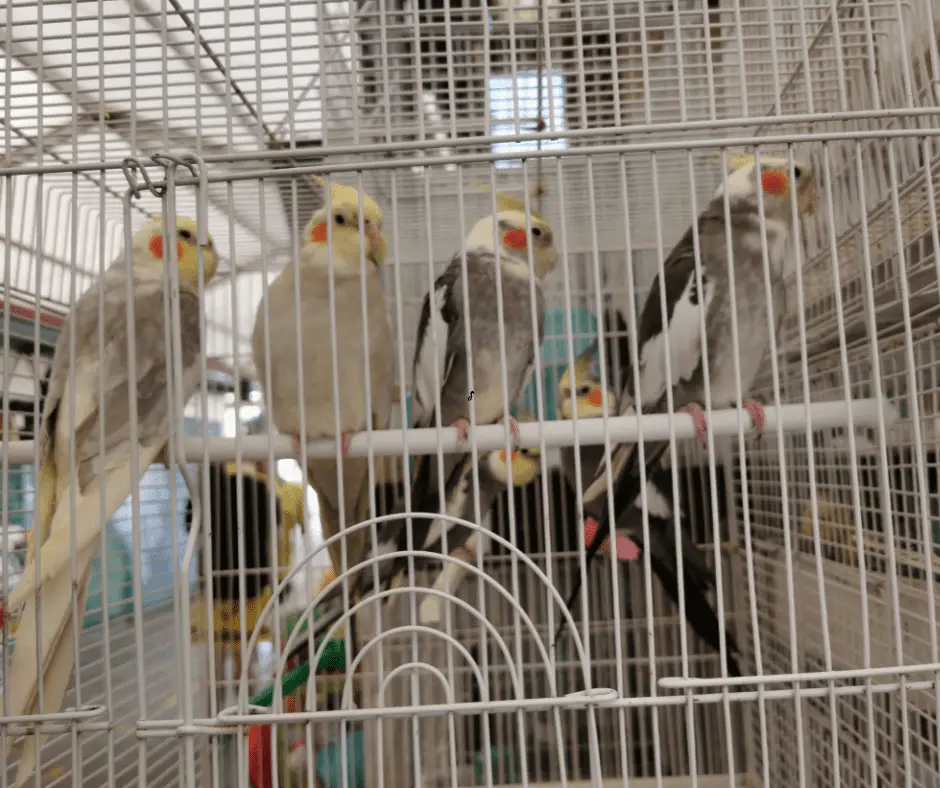
Bird cages are best when they have enough space for your pet birds to spread their wings. Cockatiels don’t like drafts, so make sure to place their cage in a warm area. They also need more than one perch to feel comfortable and love to climb, so make sure the cage has plenty of room for them.
For smaller birds like cockatiels, you’ll want to keep the cage in a cool room out of direct sunlight.
What is the ideal cockatiel’s cage size?
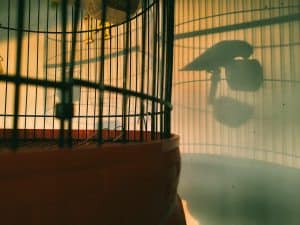
If you want to get a new cage for your cockatiel, the ideal size is at least 18”x18”x24”. If you already have a cage, and it’s smaller than this, don’t worry – you can still make it work. Just make sure to add more perches and toys to keep your pet occupied and comfortable.
It is important that the cage bars are horizontal to allow the bird to climb. To keep your bird from getting its head stuck, make sure the bars on its cage are spaced no more than half an inch apart.
The bottom of the cage should have a grate to prevent your pet from ingesting shavings. The cage floor is best covered with newspaper or pet-friendly playpen bedding.
Proper cockatiel cage supplies you will need for your cockatiel bird
When cockatiels are kept in a proper cockatiel cage, they need the following supplies to be comfortable and healthy:
A perch or two (or more)
A perch or two (or more) is a must for cockatiel cages. Parrots love to climb and need plenty of perches to do so. Make sure the bird’s cage has several perches to choose from, made from different materials like wood, rope, or metal. This will give your pet bird plenty of places to roost and play.
A toy or two (or more)
In addition to perches, parrots enjoy having toys to play with. Toys can keep your bird entertained and help relieve boredom. Choose toys that are safe for cockatiels to chew on and that are brightly colored to attract your bird’s attention.
Food and water dish
Water and food dishes are important for your pet cockatiel. The water bowl should be deep enough so that they can drink without bobbing up or down in it, but not too much depth because then the bird might get wet while drinking and could catch colds from swimming around its home environment. Giving an extra bowl of fresh water daily is a good idea for cockatiels, as they usually also use their dishes to bathe in.
Cuttlebone
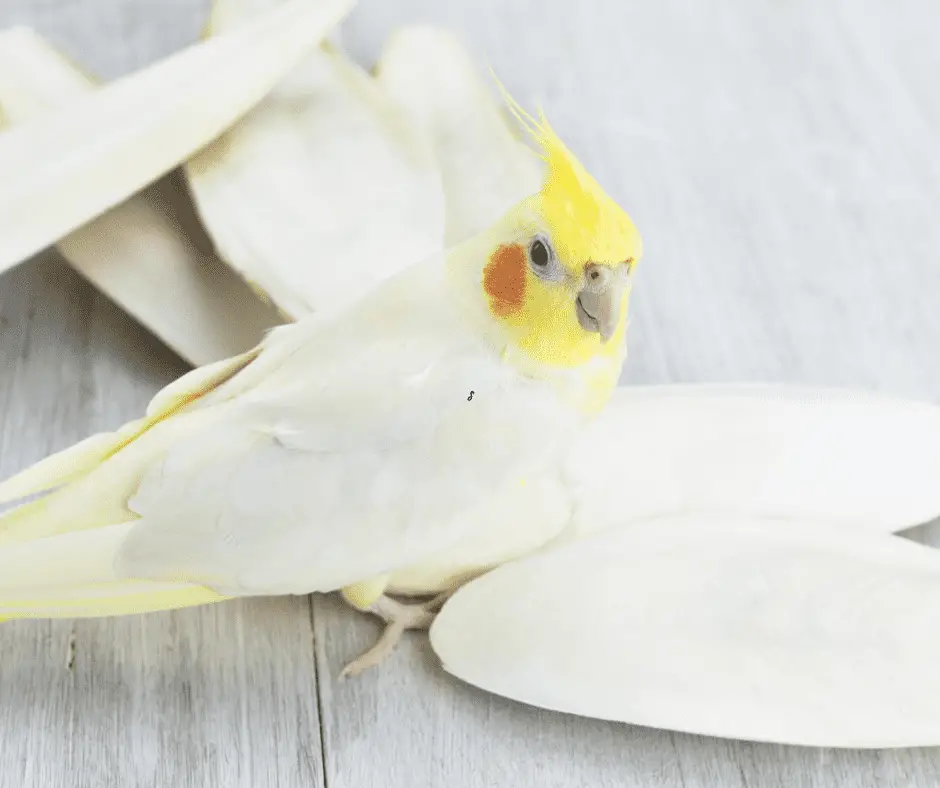
A cuttlebone became one of the pet bird supplies you need when caring for pet birds. The reason pet owners advised placing cuttlebones inside pet birds’ cages was that pet birds need this for them to be healthy. The cuttlebone gives pet birds the calcium and minerals they required since pet birds’ bones are too fragile.
A cage that is draft-free and warm
Make sure to select a cage for your bird that is draft-free and warm. Placing the cage in a drafty area, like by an open window or near an air conditioning vent, can make your cockatiel uncomfortable and may lead to health problems.
What kind of perches are recommended
Different types of perches offer different types of stimulation and are good for your pet’s feet. Natural wood perches or ropes are better for your pet’s feet than metal perches, which can be slippery and uncomfortable. It is also important to have enough perches in your pet’s cage so that they don’t get bored.
Pedi perches are a great addition to pet bird cages. Pedi perches have ridges or bumps that pet birds enjoy running their feet along. The ridges give your pet a good stretch, and it removes dirt from their claws as they do so! It helps to keep nails trimmed.
- Size: 15cm x 25cm/5.9'' x 9.8''. Each perch is unique and will differ in shape (not size) from the perch pictured
- Made of high quality wood and hardware, durable
- The unique shape of the perches provides excellent foot exercise
- An ideal place designed for your friends to play and climb, easy install in the cage
- Each perch is unique, none are the same and may vary between them,thickness and bending
Proper Cage Location
The location of your cockatiel’s cage within your home can significantly impact their well-being. Keep these factors in mind when choosing the perfect spot:
A. Safe and Quiet Area: Place the cage in a room where your bird can observe family activities but is protected from excessive noise and commotion. This will help reduce stress and ensure your bird feels secure.
B. Temperature and Humidity: Maintain a consistent temperature between 65-80°F and a humidity level of 40-60% to prevent respiratory issues and other health problems.
C. Avoid Drafts and Direct Sunlight: Position the cage away from windows, doors, and air vents to prevent drafts and exposure to direct sunlight. While cockatiels need natural light, prolonged exposure to direct sunlight can lead to overheating.
D. Social Interaction and Visibility: Ensure your bird has access to social interaction and can observe family activities, as this is essential for their mental well-being.
Tips on how to take care of your bird’s health and happiness
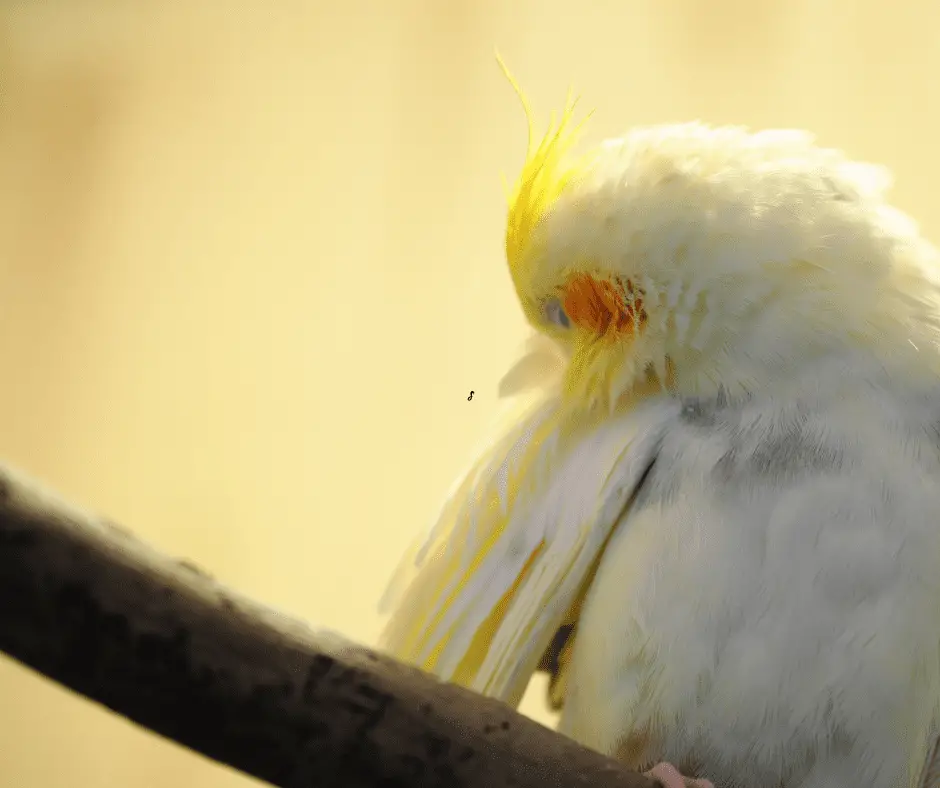
In addition to the proper set up of their cockatiel cages, it is essential to provide cockatiels with plenty of attention and love. This will help keep them healthy and happy. Some tips on how to take care of your bird’s health and happiness include:
- Make sure your bird always has access to clean water and fresh foods
- Provide a variety of toys for your bird to play with, including foraging toys, foot toys, and wooden toys
- Talk to your bird often, and teach them phrases and sounds
- Spend time playing with your bird each day
- Take your bird to the vet for regular checkups and pet bird grooming
Cage Cleaning and Maintenance
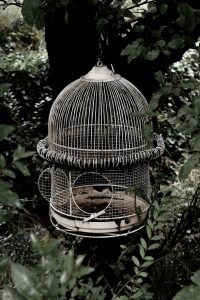
Maintaining a clean and hygienic environment is critical for your cockatiel’s health. Establish a routine for daily, weekly, and monthly cage cleaning tasks:
A. Daily Tasks: Remove droppings, uneaten food, and soiled cage liners daily. Replace water and clean water dishes to prevent bacterial growth.
B. Weekly Tasks: Clean food dishes, wipe down cage walls and perches, and launder or replace cage accessories such as rope perches and toys.
C. Monthly Tasks: Perform a deep cleaning of the entire cage using a bird-safe cleaner, and sanitize all cage accessories. Inspect toys and perches for wear and replace as needed.
Special Considerations
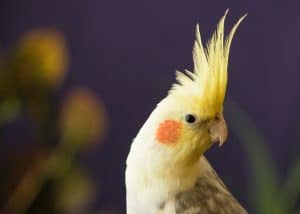
A. Taming and Training: Providing a well-designed cage environment can facilitate taming and training your cockatiel. Spend time interacting with your bird daily, and be patient as they adjust to their new surroundings.
B. Introducing New Cage Mates or Items: Introduce new birds or cage accessories gradually to minimize stress and allow your cockatiel time to adjust.
C. Recognizing Signs of Stress or Illness: Monitor your bird for signs of stress or illness related to their cage environment, such as excessive plucking, lethargy, or changes in vocalizations. Consult a veterinarian experienced in avian medicine if you have concerns about your bird’s well-being.
The dangers of not taking proper care of a cockatiel bird
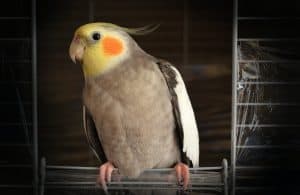
It is very important that pet owners provide their birds with a proper cockatiel cage setup, as well as plenty of attention and love. Failure to do so can result in a variety of health problems for the bird, including diseases, starvation, or dehydration. Cockatiels are very sensitive to their environment and require a lot of attention in order to be healthy and happy.
When petting a pet bird, it is important to be gentle and know when to stop petting the bird. If the cockatiel gets scared or feels threatened by its owner’s petting, the pet bird might bite. When this happens, immediately stop petting and slowly back away from your pet bird.
In order for pet cockatiels to feel safe and happy, pet owners must provide their pet birds with pet bird cages that are large enough to allow them room to roam, pet bird cages with the proper pet bird cage setup, and plenty of pet attention. Cockatiels do not require much petting and should only be petted for a few minutes at a time, as they can become scared or stressed if petted for too long.
Final Thoughts
A properly set up cockatiel cage is essential for ensuring a happy and healthy life for your feathered friend. By following this guide and adjusting the cage setup as needed, you will create a comfortable and stimulating environment that supports your cockatiel’s physical and emotional needs. Always continue learning about cockatiel care and consult with avian experts to provide the best possible home for your beloved pet.
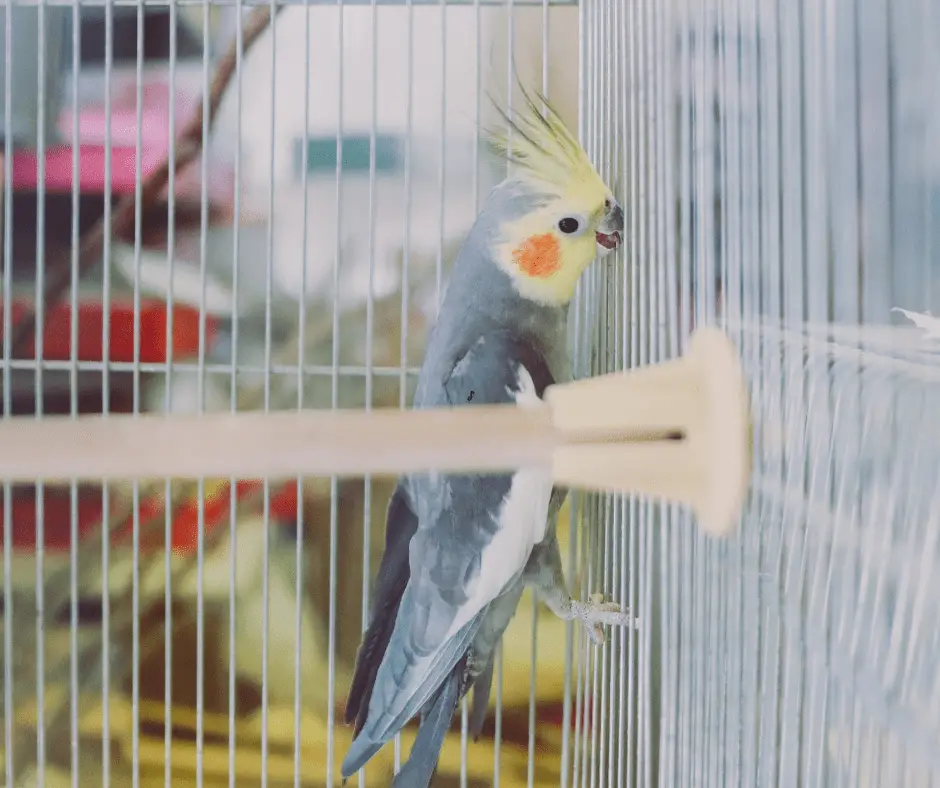

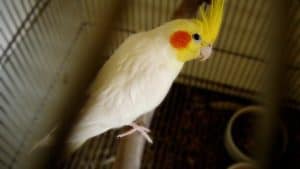
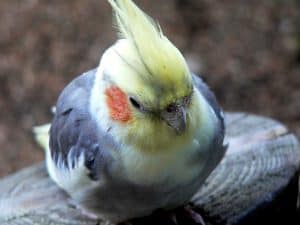
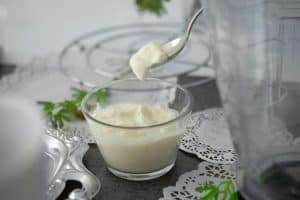
Very interesting information!Perfect just what I was looking
for!Expand blog
Lirigzon Gashi